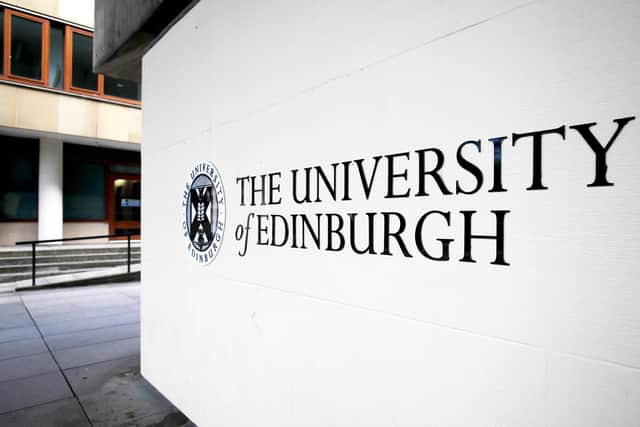Edinburgh University access - a phenomenal achievement or a breach of natural fairness?
This article contains affiliate links. We may earn a small commission on items purchased through this article, but that does not affect our editorial judgement.
The figures, obtained by Scottish Labour from the University of Edinburgh, show of 1,200 applicants and 170 places, zero came from areas or schools not considered to be deprived or low attainment.
This is arguably a phenomenal achievement for one of the SNP’s top priorities – enabling more of those historically least likely to go to university to move on to higher education.
Advertisement
Hide AdAdvertisement
Hide AdIf you judge Nicola Sturgeon on education as she famously said you should, this is a success story under the policy approach of the Government.


However, Labour’s education spokesperson Michael Marra points at how the funding model of universities in Scotland, which caps the number of places available to Scottish students, effectively sees foreign students paying thousands of pounds to jump the queue.
This cap, plus the drive to widen access, means swathes of young Scots have “no chance of getting in”, Mr Marra says. And the numbers seem to back him up.
This is known as ‘displacement’ – a topic tackled by the Government’s Commissioner for Fair Access, Peter Scott, in his annual report from 2019.
Mr Scott argued any displacement that had taken place is a “reflection of a growing consciousness” around the importance of “fairer, and necessarily more equal, access to higher education”.
He adds lifting the cap on student places would accelerate the narrowing of the gap between the more affluent and most deprived, all while reducing the number of students who suffer an “absolute reduction in their chances of securing university places”.
The other side of this coin is the argument around fairness and meritocracy.
Some opposition politicians will argue applicants should be judged purely on merit, and that where they came from or their background should have no impact on their chances.
Advertisement
Hide AdAdvertisement
Hide AdDoes widening access in the manner of Edinburgh fulfil that natural sense of justice, especially when they speak of guaranteeing places for the most disadvantaged? And what about those from average schools in average areas who miss out and do not fit the stereotype of affluence?
Or, should universities and policy makers take into account that not all backgrounds are equal, and not all schools are the same? As always, it depends who you ask.
Want to hear more from The Scotsman's politics team? Check out the latest episode of our political podcast, The Steamie.
It's available wherever you get your podcasts, including Apple Podcasts and Spotify.
Comments
Want to join the conversation? Please or to comment on this article.
